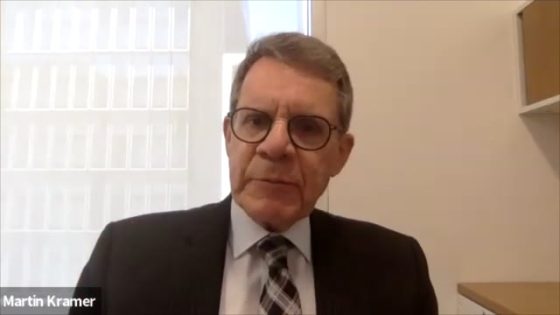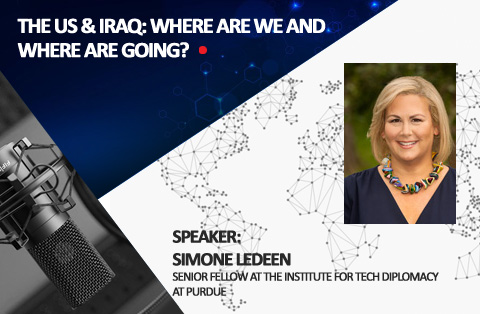The responses to my column on the call by some academics to boycott Israeli universities in the name of academic freedom were impassioned and polarized. I was pleased to find more readers than usual on my side, but one argument favored by those who agreed with my negative view of the boycott is, I think, beside the point. That is the argument that the boycott is wrong because it is selective, because it singles out Israel when there are so many other countries in the world whose policies and actions are just as bad or worse. Actually, this is not an argument; it is a debating point (as some who offer it know): it is a form of reductio ad absurdum, the rhetorical trick of extending an opponent’s claim until it yields an absurd result, in this case the absurd result that follows if we are required to break off relations with universities housed in nations whose human rights record we find questionable: on this reasoning, we would have to break off relationships with everyone and there would be no academic exchange at all.
The problem with this debating point is that it puts the emphasis on the wrong question — whether Israel is a good or bad country, and thereby implies that if it were clearly one or the other, the boycott would be clearly bad or good. But Israel’s moral status is irrelevant to the right question, which is whether academic institutions boycotting other academic institutions can ever be an expression of, rather than an undermining of, academic freedom. Ian Maitland is exactly on target when he says that “[t]he point isn’t whether the policy of boycotting universities in countries whose policies we deplore is applied consistently. It is whether it is good policy in any circumstances.” Even if it were true that “Israel has no recognized moral standing in the world” (Tom Paine), that would not be a reason for engaging in an academic boycott against it, and the anointing of Israel as the beacon of freedom would not be a reason for exempting it from a boycott, should one be academically justified (as I think it could not be).
For many posters, playing the “consistency” card is merely preliminary to the accusation they really want to make, the accusation that the boycotters are anti-Semites. They are saying, if you won’t follow the logic of your argument to its absurd conclusion and boycott everyone, it must be because you harbor a special animus toward Jews. But again this is a red herring, indeed the same red herring. No doubt some boycotters are anti-Semitic, while others (a vast majority, I would think) are not. But the rightness or wrongness of an action has nothing to do with the moral status of the actor who performs it. If academics boycotting other academics is wrong, it is wrong whether the boycotter is a virulent anti-Semite or someone whose heart is discrimination- free.
It follows that the determination of the rightness or wrongness of the boycott should begin not with a moral calculus of either nations or persons, but with a specification of what business universities are in, which will also be a specification of what activities are appropriate to university professors and a specification of the proper scope of academic freedom. Poster Nana’s understanding of what professors are supposed to do is expansive: “Part of academics’ responsibility is the advancement of Justice, equality, human rights preservation.” That would come as a surprise to the committee that approved my dissertation, to the departments that hired me, and to the presses that have published my work. They didn’t ask me how I planned to advance justice and equality; they were concerned with the quality of my scholarship and with the contribution my analyses might make to the discipline’s continuing conversations. They were concerned, that is, with my professional, not my political, performance. Of course, Nana’s capacious definition of academic responsibility makes no distinction between the professional and the political. Indeed, in her account the professional is an extension of the political, and, if that is so, it makes perfect sense to regard boycotting — described by Robert Jennings as a “definitive political instrument” — as a legitimate professional act and as an expression of academic freedom, no longer understood to be “academic” in any serious sense.
Jennings derides my “narrow” and “simplistic categorical reasoning,” which, he says, is not “up to the task of addressing so complex a question.” By that he means that by insisting on a limited, guild notion of academic freedom — it is the freedom to pursue scholarly inquiry, not the freedom to advance justice and equality on university time — I fall short of addressing the “multilayered social milieu” in which the academy inevitably resides. I would reply that while the “multilayered social milieu” is properly the object of academic attention — it can be described, analyzed and mapped — it is not the proper object of academic intervention. “Narrow” is an adjective the academy should not shun but embrace, for if academic activity cannot be narrowly defined, it loses its shape and becomes indistinguishable from political rallies and partisan exhortation. This of course is what the boycotters want. Definitions like Nana’s do not enhance the academic enterprise or add a heroic gloss to the concept of academic freedom; rather they destroy both by emptying them of any specific content.
Chris does the same thing when he declares that “it is entirely appropriate for any [academic] institution to indicate its disapproval of a political regime by refusing to establish … arrangements with institutions that collaborate with that regime.” But nothing in the charge given to a university by the state or by a board of trustees authorizes, much less demands, the awarding of points to a political regime. It is only if universities are thought to be in the business of giving seals of approval or disapproval to sovereign states (a job reserved for organizations like the State Department and the United Nations) that arrangements with other universities can “appropriately” be conditioned on a determination of political correctness. A university is free, just as Chris asserts, not to enter into arrangements with another institution for all kinds of reasons: the curriculums may not fit, the finances may not work, the prestige of the would-be-partner may be insufficient. These and other professional reasons are the appropriate ingredients of a negative decision; disagreement with the policies of the state regime is not an appropriate ingredient because it is not a professional one.
Some posters say that by focusing on neatly cabined professional issues, I display an unconcern with the “right of Palestinians not to be bombed, and killed, imprisoned, have their olive trees burned and land stolen” (Christian Haesemeyer). But if I “take no position” on these matters it is because they are not my subject in the column, and not because I regard them as trivial or unworthy of a response. Jim R. gets it right: “Fish is writing about academic freedom. Not about boycotts, political messaging or anything else.” Posing a limited question about the nature and scope of academic freedom does not mean that one is dismissing, or saying anything at all about, other questions that are not, at the moment, on the table. It means, simply, that one is keeping to the point, a cardinal intellectual virtue.
Another version of the demand that I declare a position on everything takes the form of a series of questions: “Where were you Stanley Fish when Noam Chomsky was refused admission to Israel…? Where were you when the University of Haifa drove the distinguished historian Ilan Pappe into exile?” (Rosa H.). “[W]here was [Fish] when Finkelstein was denied tenure at DePaul? When Shortell was pushed out of chairmanship at Brooklyn College? When the CUNY board of Trustees usurped faculty authority to institute a dumbed-down, general ed-lite curriculum ignoring the registered opposition of 92% of the faculty?”(David A.). “And what would Professor Fish say about the boycott used to deny South Africa access to … academics when their policy of apartheid was in full cry?” (chickenlover). “I would also ask Mr. Fish if his interest in academic freedom extended to a support of the lecture by Omar Barghouti and Judith Butler at Brooklyn College last winter?” (Mary Ann).
The last two questions are easy. I am on record (“To Boycott or Not to Boycott”) saying that university divestment from South African-related stocks for political rather than economic reasons was wrong. And I wrote two columns in this space supporting the Barghouti-Butler lecture and excoriating those who tried to stop it. As for the other questions, that’s a lot of places where I should have been instead of where I probably was, in class teaching, or in my office writing. Moreover, the examples hurled at me are not always to the point of my column. Professor Finkelstein was denied tenure, not boycotted. (No consolation to him.) The CUNY trustees may have been unwise to ignore the views of 92 percent of the faculty, but they had the right and authority to do so. Maybe they were being stupid and arrogant, as trustees often are, but they weren’t boycotting anything. And what I as an American citizen have to do with the decision of the state of Israel to admit or not admit someone, even Noam Chomsky, is beyond me. It would certainly help if the parties to conversations like this one would keep to the terms of the debate and not engage in scatter-gun hypotheticals. But my main objection to these questions/challenges is that by demanding that one (in this case I) take up every issue that could conceivably be related to the topic under discussion, they ensure that the topic will never come into focus and that the discussion itself will be hopelessly diffuse.
Finally, allow me to comment on two criticism of my prose style. N.S. Edwards says that he has “never read such a convoluted, poorly written article.” Robert, on the other hand (or is it the other hand?), complains that the column is too well-written: “Am I the only one who feels exhausted after reading Fish’s tight, manicured precise-to-within-an-inch-of-their-lives sentences? They seem to form granite like paragraphs all precisely metered and placed ‘so’ — like the foundations of a pyramid.” My goal is to be guilty of this charge every time out.




